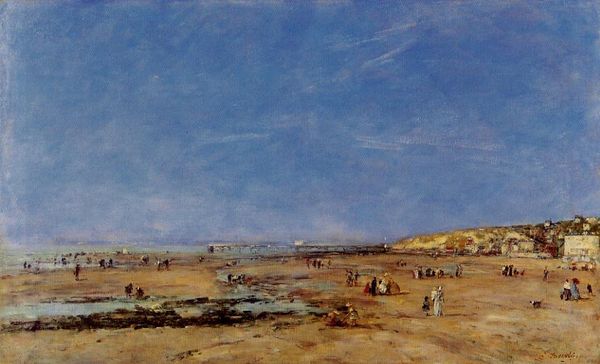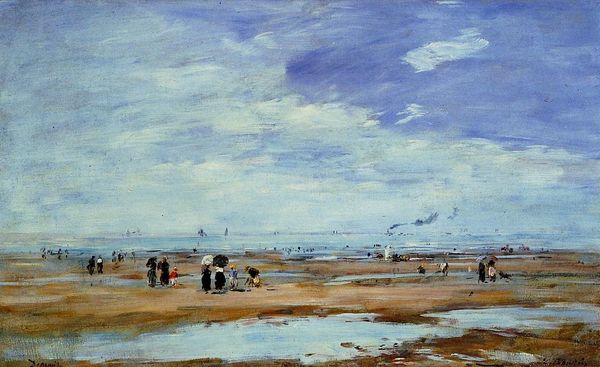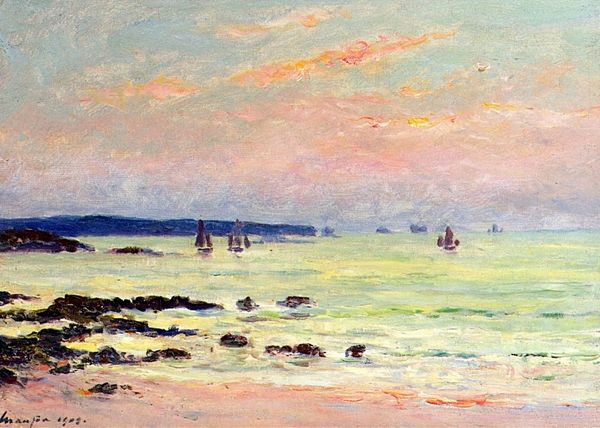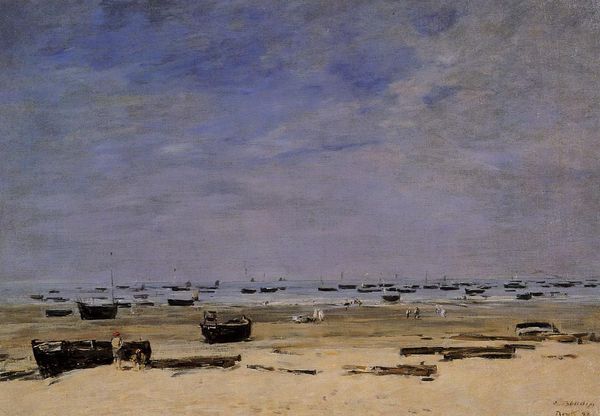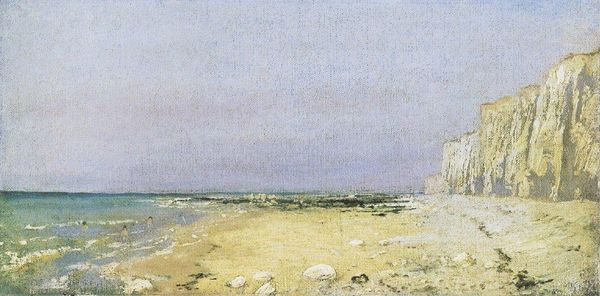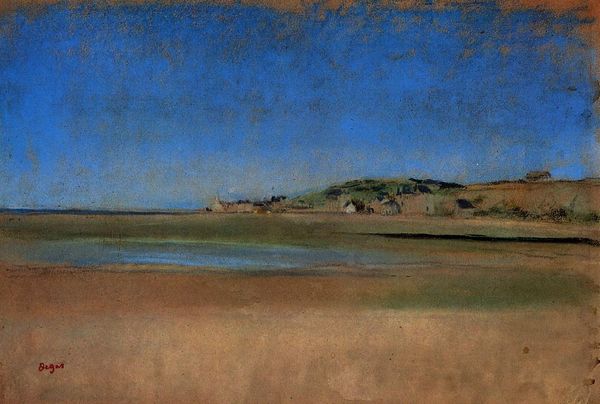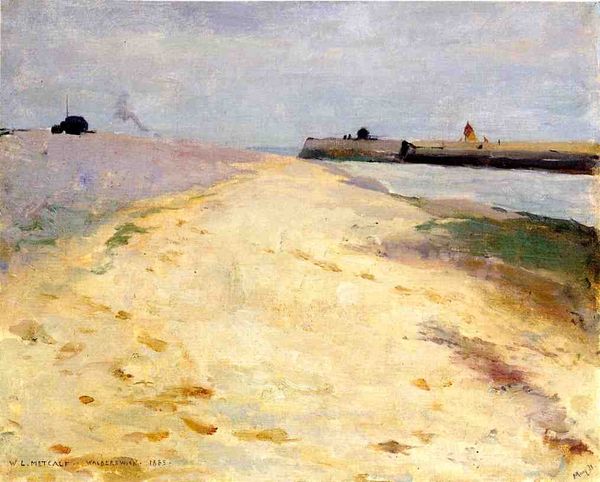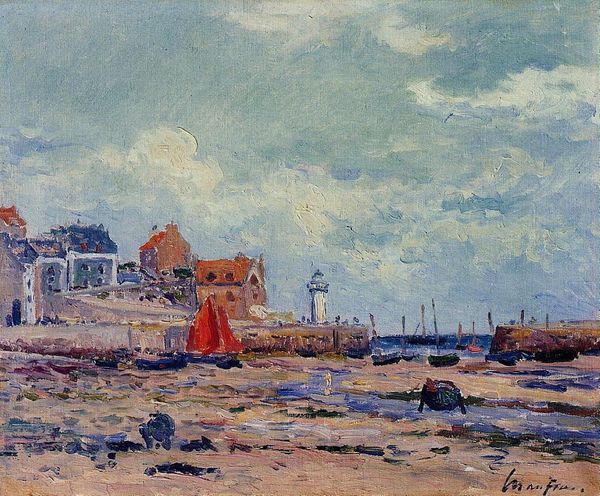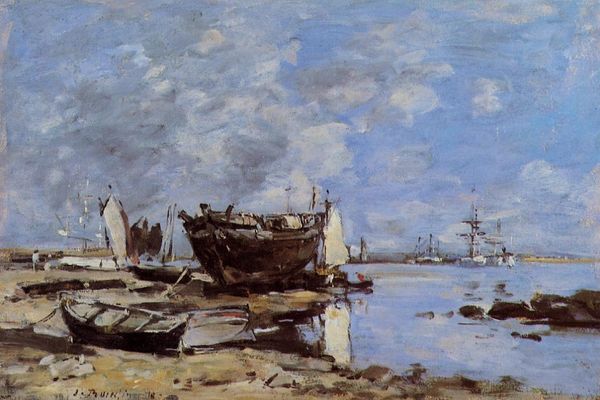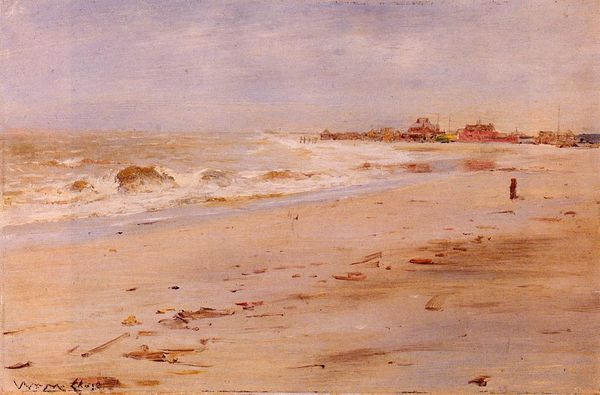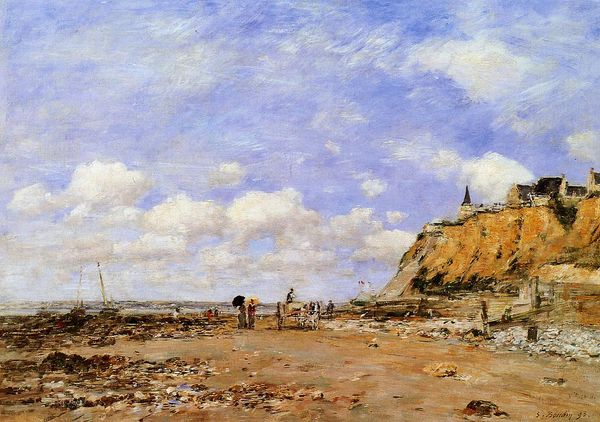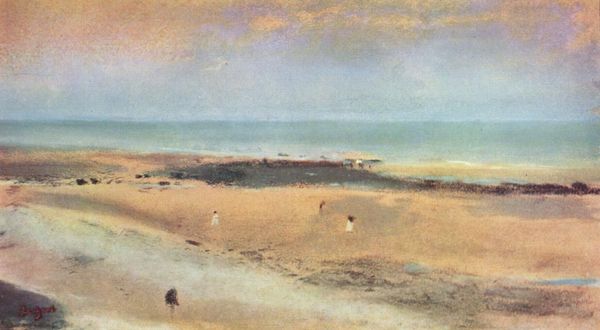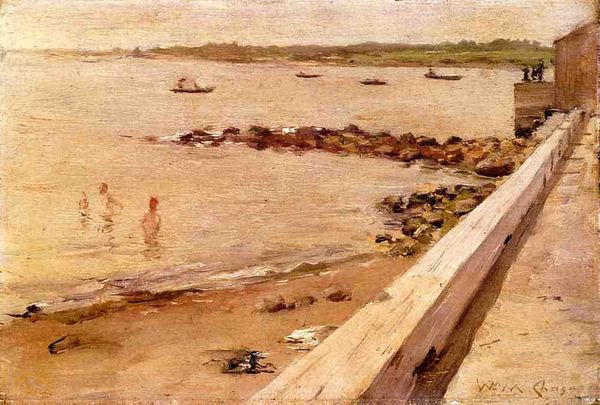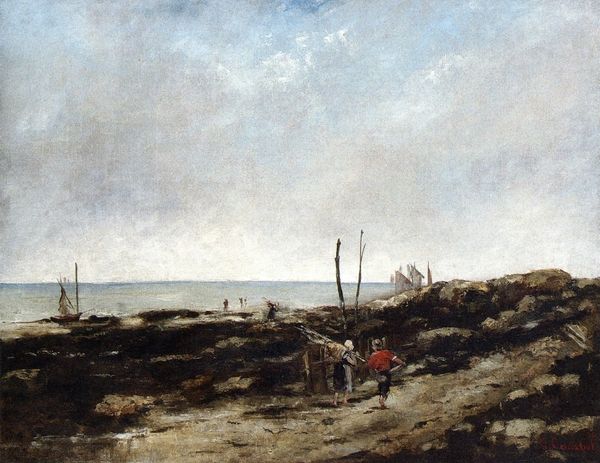
plein-air, oil-paint
#
sky
#
cliff
#
impressionism
#
plein-air
#
oil-paint
#
landscape
#
impressionist landscape
#
oil painting
#
rock
#
seascape
Dimensions: 26.67 x 40.64 cm
Copyright: Public domain
Editor: So, this is William Merritt Chase’s "Shore Scene" from 1886. It’s an oil painting and, well, it makes me think of a cold, breezy day at the beach. There's a stillness despite the implied movement in the waves. What do you see in this piece? Curator: I see a window into the evolving leisure culture of the late 19th century. The plein-air technique is crucial here. Chase isn’t just painting a beach, he’s capturing a specific moment in time and place, a fleeting impression. Consider how the rise of industrialization allowed for more leisure time, making scenes like this, accessible beaches, increasingly popular subjects for artists and consumers alike. Does this reflect a romantic view or a social commentary? Editor: A bit of both, maybe? It feels romantic, but also… a little detached? The figures are so small, almost lost in the landscape. Curator: Exactly. And that detachment, I think, is key. Chase is presenting a scene of leisure, but he's not necessarily inviting us into it. The emphasis on capturing a moment relates to shift in artistic philosophy to prioritizing personal, subjective experience of an era marked by change. Does the composition suggest that Chase is more interested in showing this leisure than immersing in it? Editor: That makes a lot of sense. I hadn’t thought about it that way. Curator: Think of the context: the rise of photography, challenging painting's role in documentation. Impressionism, and artists like Chase, offer something photography can't – a distinctly artistic interpretation of a rapidly changing world. It's a record, yes, but one filtered through a specific artistic lens and made accessible to a new museum-going public. Editor: It's fascinating how much the social context influences the artistic choices. Curator: Indeed! It moves beyond being merely an appealing, quickly-executed landscape and provides us a complex snapshot of American society at the time. Editor: Well, I will look at Impressionism much differently now.
Comments
No comments
Be the first to comment and join the conversation on the ultimate creative platform.
